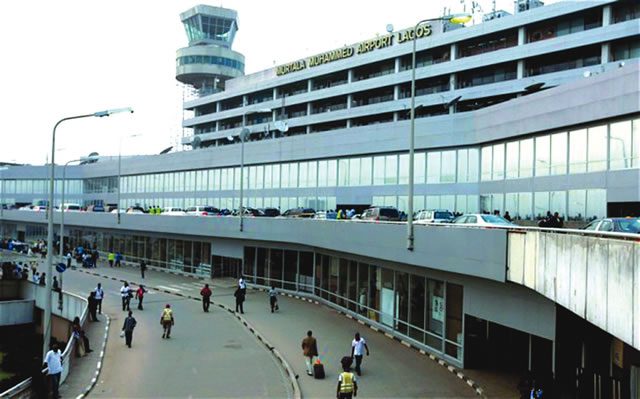Forgotten Dairies
Cross Rivers Super Highway, A Sabotage to COP 21 -By Smart Chukwuma Amaefula


Smart Chukwuma Amaefula
Deforestation is the second largest source of carbon emissions. By most accounts, deforestation in tropical rainforests adds more carbon dioxide to the atmosphere than the sum total of cars and trucks on the world’s roads. According to the World Carfree Network (WCN), cars and trucks account for about 14 percent of global carbon emissions, while most analysts attribute upwards of 15 percent to deforestation.
A recent study published in the journal of Nature Geoscience shows that environmental experts have set a threshold that reducing deforestation will ensure a reduction of carbon emission by half by 2020 and enable the world to achieve a two degrees celsius for global temperature as agreed by the United Nations Framework Convention on Climate Change (UNFCCC) in the just concluded COP 21 in Paris.
Any realistic plan to reduce global warming pollution sufficiently and in time to avoid dangerous consequences must rely in part on preserving tropical forests.
But how possible can the cutting of carbon emission be? As various countries of the world are frantically trying to meet this threshold, Nigeria is still struggling with keeping to the promises. For consecutive two weeks, world leaders convened in Paris in December 2015 to agree on a successor to the Kyoto Protocol. Reducing deforestation is one key way to reduce carbon emissions. According to the New York Times, Over 60 heads of state put an emphasis on forest conservation at COP21. That is appreciable as forests cover 31 percent of the earth’s land area, providing oxygen and absorbing carbon.
However, some of the world’s forests are threatened. For example, Cross River State of Nigeria naturally habours some of the best preserved rain forests in Nigeria, such as the Cross River National Park and the Ekuri Community Forest. These forests are now facing the threat of point-and-kill to pave way for a Super Highway of 260km running from Cross River to Benue State. The implication is that about 5,524sq km of pristine forest will be destroyed. Not only will the forest go but Nigeria would therefore lose its REDD+ status.
Even though it is in the self-interest of the international community, but achieving the target of reducing CO2 emission by 2 degrees will therefore be challenging. This is an inadvertent attempt to sabotage the official agreement Nigeria contributed in the Paris climate summit.
While the controversy about not carrying out a thorough Environmental and Social Impact assessment (ESIA) on the super high way rages on locally and nationally, the massive deforestation emanating from the entire project of the super highway construction has put Nigeria on the UNFCCC watch over its body language that speaks differently from its verbal one.
It is regrettable that the government of Cross River State under the leadership of Professor Ben Ayade has not deemed it imperative to evaluate the adverse consequences of this project to the affected communities, even though there are the usual jumbo promises made by the government to the communities affected by the project. But how are these promises going to be actualised to the affected communities that are “wearing the shoes and know where it pinches”? If the promises of the government have been accepted, why have the affected communities continued to carry placards to protest against the destruction of their forest? In other words, there are no adequate consideration of the impacts of the superhighway on nearby protected areas, such as the Cross River National Park, Afi Mountain Wildlife Sanctuary, Afi River Forest Reserve, Ukpon River Forest Reserve and Cross River South Forest Reserve.
No project is commendable when it is jettisoned by the communities it is claimed to benefit.
Till now, the government of Cross River has not substantially evidenced any cost-benefit analysis for each of the routes proposed nor given clear justification for the superhighway and reasons for building a new road instead of upgrading the existing highway.
Reports from the Federal Ministry of Environment showed that the EIA from the government of Cross River does not even show the Cross River South Forest Reserve on its maps as the highway will cut directly through this important forest reserve with major impacts inevitable. If the socio-economic study focused only on 21 communities against an estimated more than 180 communities within the 20 kilometre corridor that will be affected by the proposed project, it means danger still looms large on these communities as the full impact of the construction on their livelihoods and vulnerability has not been assessed.
It will be advisable that the state government of Cross River keys into the template of the Federal Ministry of Environment that touches on the international best practices of Environmental Impact Assessment. Not doing so will mean a lack of transparency on the side of the government and suggest ulterior motives, such as land grabbing as speculated in some quarters.
However, we still wonder how such high calibre construction of a super highway supersedes basic infrastructural necessities, such as providing efficient and constant electricity to the rural communities of Cross River when its cost of N700 billion can power the affected communities with alternative sources of energy, such as off-grid solar installations that can encourage micro economic activities in the state to thrive.
Let us hope that the right thing would be done by the government of Cross River before its insistence on the construction of a jumbo super highway that leads to a sabotage of the decisions of the just concluded COP 21.
Smart Chukwuma Amaefula, an environmentalist and president of CLIMATTERS, Abuja, can be reached throughclimatters.volunteer@gmail.com

















